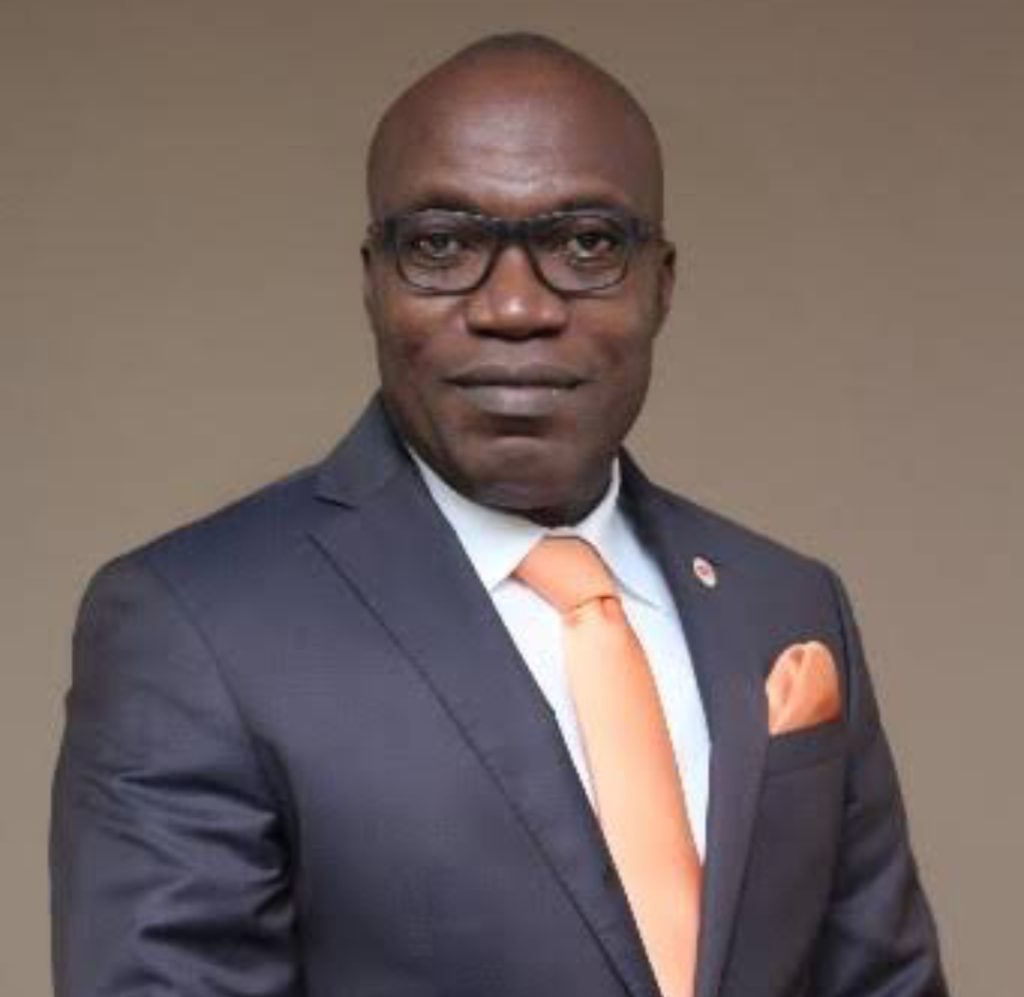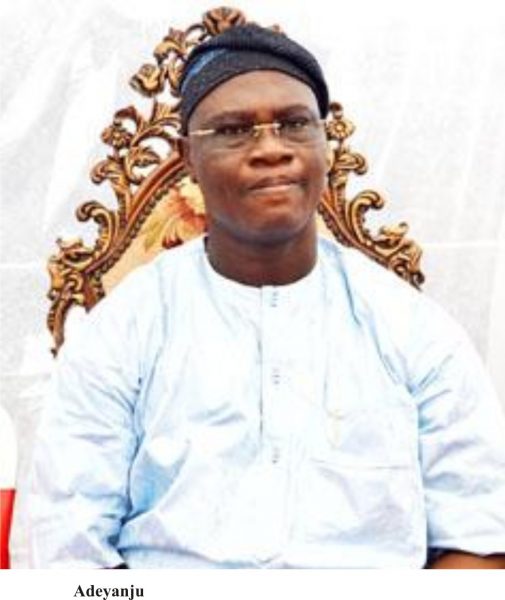2024 Budget: Government’s Revenue Projection Not Realistic -Chukwu

The Federal Government recently presented N27.5triilion as 2024 budget to the nation with mixed reactions arising therefrom. It was tagged government of “Renewed Hope” but many analysts are still searching for where the hope is embedded in the expenditure projection. As the search for hope continues in hopelessness, the Group Managing Director of Cowry Asset Management Limited, Chief Johnson Chukwu makes an x-ray of the budgetary postulations. Do you want to know his verdict? Find out in this brief interview with Arise TV monitored by MMS Plus.
The Speaker of the House of Representatives said the biggest challenge in the key areas which the budget focuses is the balancing Act that will need to happen. Based on the constraints of available resources, do you think this budget can be financed with minimal borrowing, if approved?
I don’t think so, because if you talk of minimal borrowing, you have to look at budgetary revenue of the government which stands at about 18.2 trillion Naira whereas expenditure is about 27.5 trillion Naira.
So we have an issue, there is provision that government will have to borrow about 9.3 trillion Naira, that is more than 50% of the budgetary revenue. So in effect, government is going to borrow at minimum 50% of what the budgetary revenue is, assuming the budgetary projection is achieved.
Then if you look at the revenue projections, there are areas of concern which will make the possibility of achieving the revenue projections as currently contained in the budget a tough call. You have a budgetary crude production of about 1.78 million barrels per day, given where we are today, that might be a difficult call to achieve. I don’t see how Nigeria can actually grow consistently to produce 1.78 million barrels a day.
Another factor that has to be of paramount importance in achieving the budget is the crude oil benchmark. The budget that has been presented made provision for about $77 per barrel, that will depend on how the global oil market is, if the oil market is strong, we could achieve a $77 per barrel but remember you are looking at average for the entire year, so that means we should expect in a region of a little bit above $77 per barrel for us to achieve an average of $77 per barrel crude. So those are the factors we have to consider but first thing is that, can we achieve the revenue projections? I think in the past years we have never been able to achieve revenue projections. Secondly, we have an issue, a provision that we are going to borrow, so we can’t run away from the fact that we are going to borrow about 9.3 trillion Naira assuming we are going to achieve the revenue projection of 18.2 trillion Naira.
Let’s take a look at the issue of recurrent expenditure which has often been a challenge to Nigeria’s budget over time, will this scenario be any different with the 2024 budget proposal as it is right now and the issue of servicing government itself, it activities, with the three arms of government, I’d like to hear your thoughts on that?
Starting from the government record expenditure, some of them are what we call non-discretionary expenditure, most critical of it is the debt servicing which stands at about 10.6 trillion Naira which is about 56% of the total budgetary revenue. There’s nothing you can do about it because we are already in the debt and you must pay interest to those who have lent you money, either local or foreign lenders but the most critical thing is, you look at the budgetary capital expenditure, it is just about 5.6 trillion Naira which is about 20% of the total government expenditure. If you take the government expenditure at about 27.5 trillion, the capital expenditure component is just about 20% of the government budgetary expenditure. So in effect, 80% of total budgetary expenditure of 27.5 trillion Naira will largely be either debt servicing or other recurrent expenditure and that’s where we find ourselves today. We have to grow our revenue or find a way of moderating out recurring expenditure to be able to create head room for capital expenditure which is what is critical for economic development.
When it comes to the benchmark of 1.78 million barrels of crude per day, do you think that’s realistic?
I think it’s going to be a tough call to achieve that, a couple of things we have to recognize, the best we saw in the past couple of years was in the region of 1.2, 1.3 million barrels per day. I thinks there’s a statement that in recent past, we have gotten to 1.6 million barrels per day but remember that is not consistent, the fundamental issues around the Niger Delta has not been resolved, we are not having new investments in exploration and production, so we are basically drilling from existing fields, many of the oil majors have exited their onshore and offshore assets, local oil producing companies can hardly evacuate through pipeline and those issues are not going to be resolved in the next one year, of course there’s host community Act that is currently being implemented, you need to get to a point but even if you go to the host community, the whole community are also fighting among themselves and once there is dispute in the host community, they now constrain production. So I don’t see how realistically we can produce on an average basis of 1.78 million barrels per day and once that is not achieved and you have a negative volume variance, you are going to have difficulty in achieving your revenue projections.
Let’s talk about the inflation that is expected to moderate to 21.4% in 2024, regarding the economic dynamics by next year, do you think that is feasible and how will that impact this budget proposal?
I think we should expect moderation in inflation because remember inflation is measured by year on year price changes, whether we are going to achieve 21% is what I can’t say with certainty because we don’t expect another huge set of devaluation next year, given where we are in exchange rate, so the impact of the variation on price level will not be as steep as it is in the current year, so if you eliminate the issue of inflationary impact induced by devaluation, the other major driver of inflation is food production. I hope the government will be able to work towards moderating the issues of insecurity in the Northern part of the country, unfortunately it doesn’t seem we’ve achieved any traction in that area but if we are able to achieve moderation in the issues of insecurity in the Northern part. We should see improvement in food production, if you have an improvement in food production, then food inflation will moderate, if you now have further material devaluation in exchange rate, we should expect that changes between price level next year and price level this year will not be as steep. So I think we should see an inflation rate that will come below the 27.33% we saw in the month of October, whether it will moderate to the point of 21% is what I don’t know but we should ordinarily expect some moderation in inflation rate.
When it comes to reduction in the cost of governance, do you see anything in this budget that suggest that in any way this is going to happen?
I don’t think we should be looking out for that in the budget but we should be looking at policy pronouncement from the government. The issue around the nationalization of the ministries, agencies and the departments, I think that some casual statement have been made about that, we need to see a committee or whoever will drive that go into work to receive some level of harmonization of ministries, agencies and departments of the government so as to eliminate overlap and additional cost incurred in running some of these agencies of government. If we don’t do that, where will the savings come from? The other aspect of saving is the government expenditure on its lifestyle, we have seen the debate about buying yacht, additional vehicles, each of these things you get will also require a running cost to operate them, so once you acquire an asset, you will have to also budget for its running cost, so if we add additional assets to the one we have today, instead of selling off those asset, you should expect that the cost of governance will continue to increase. We need to see that not from the budget but from the policy pronouncement from the government like one of these government said, government officials would no longer stay in government houses, so they are going to sell those properties to individuals, I think they called it monetization of benefits. So they monetize some of those benefits, like houses, vehicles, then the government operators or top civil servants didn’t have to get vehicles bought and fueled by the government, drivers paid for, but money was paid to them.
So if we had to go back to that policy which unfortunately had been reversed without any formal change in legislation, we are going to eliminate situations where government officials will have a huge convoy because these convoys are fueled as government expenditure, you give them allowance, they would want to manage those allowances so that they will not have to deep their hands into their private resources, so if we change that policy, we will begin to see moderation in government expenditure. Without any defined pronouncement by the government on changes on some of the existing administrative structure, then we shouldn’t be looking for any reduction in expenditure from the budgetary allocation.
The president is also on course to maintain the January through December budget cycle commenced by his predecessor, former president Buhari, do you think that is possible especially with the target of having to implement it by January next year?
The reality is that the national assembly with their track record so far can approve the budget tomorrow, we have a national assembly that has no track record of querying, or doing a thorough review or an objective assessment of whatever input that comes from the executive, so if the president want it approved tomorrow, we would have the budget approved and signed tomorrow, the experience we’ve had so far is that, they won’t bother to look at it, anything from the president is as good to go. So what is my answer? It can be approved in the next few hours.







